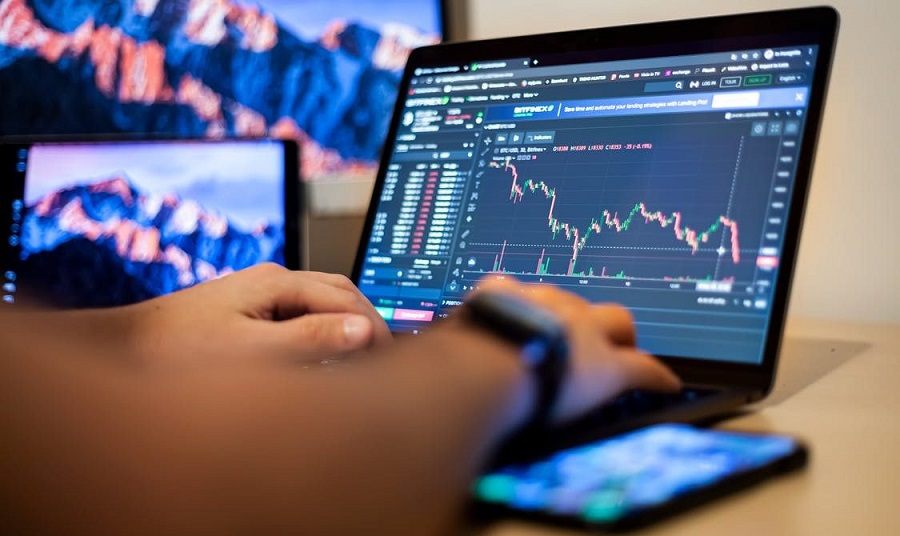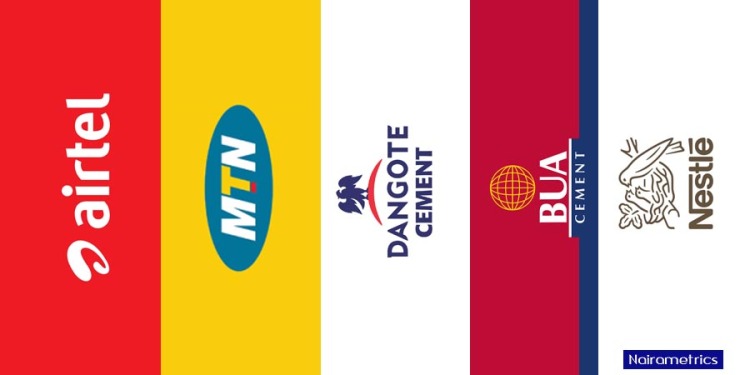A persistent loss of value in the local currency, the naira, has precipitated a heightened demand for foreign exchange for saving spare cash in a manner that hedges against inflation. Besides this, however, many Nigerians have also adopted forex trading as a business and a number of these ‘traders’ often seek the participation of people with spare cash as ‘investors’ in the forex trading business. While a few have genuinely provided value to their patrons, many have taken their investors to the cleaners, defrauding them to the tune of several millions of naira.
According to a report released by Dailyfx (a forex research firm) in 2020, Nigeria’s forex traders traded currency positions worth as much as $1.25 million on average, daily.
While the volume of transactions done so far is huge enough to build an industry, it is also tempting enough to attract scammers, whose mission is to rip ignorant Nigerians of their hard-earned money.
Why do Nigerians fall victim?
Investment experts have attributed the development to ignorance (on the part of the victims), economic hardship, and greed, among others.
An entrepreneur with business interests in technology and investment management, Dr Tayo Oyedeji, who publicly shared his experience with a forex trader, explained that most Nigerians fall for the forex scammers because they lack adequate knowledge to spot real from fake.
The founder of Overwoodng, an investment management firm, said, “Early this year, a young man walked into my office and offered to “help” us make 5% per month on all the investments in our portfolio. I did the math and saw that our $1 million will quickly become $1 billion in 15 years at 60% per annum from this gentleman. What a deal!”
But unlike several undiscerning investors, Oyedeji asked about the underlying asset and was told it was forex trading.
“I asked him about the underlying value he was creating. He said ‘nothing.’ We are just trading currency. I asked him about his track record. He said he has made 7.5% per month for the past two years.
“Note that 7.5% per month is 90% per annum, which means he almost doubles his principal every year. In this scenario, it means you can start with N1 million and have almost N40 billion in 20 years.
“He showed me his financial records that reflected the magical 7.5% per month and got my whole team excited about the prospects that we could all become magically rich without doing much work. Just give this magician $1 million and we are set for life at 5% return per month,” Oyedeji explained.
Experience, they say, is a better teacher (if not the best one). At this point, Oyedeji decided to allow his instinct and experience to guide him.
“I am a little older and more experienced so I asked him to log into his trading platform so that I can see the magical gains. Of course, he suddenly got antsy.
“I promised him a lot of investments if he would show me the gains from his platform. PLATFORM, not records. He logged in and showed me his Q1 2019 record, and he actually gained about 30% in Q1 2019. Absolutely magical!
“I insisted on an expanded date range and sure enough, he lost all the gains in Q2, Q3 2019 and made a loss for the whole year. My team was shocked but I just grinned knowingly,” he added.
But why had Oyedeji grinned? According to him, if you can make 7.5% per month, you don’t need investors and equally don’t need marketing, or to sell a teaching course. All such an investor needs is a small amount of money and 100% focus on your craft.
“The reason they are propositioning you to invest in their magic venture is because they don’t make 7.5% per month and they need your money to fill a gap. Anyone who can consistently make 7.5% a month will be the richest person in the world in a few years. Be careful, guys. I can assure you that less than 1% of FX traders can make more than 2% per month. If 2% per month is so difficult to achieve, how can these magicians offer you a 5% return? You will lose your money. Don’t do it,” he cautioned.
Unlike Oyedeji, Femi Bello, an electrical engineer, was not lucky or rather, was not as discerning as the investment analyst.
When he was approached by his younger brother, a student of Moshood Abiola Polytechnic, Abeokuta, to invest in forex through Tonso Elite Investment Limited, he wasted no time in injecting the sum of N800,000 into a company he knew little or nothing about.
Tonso, which is owned by a group of students in Moshood Abiola Polytechnic, is a portfolio investment platform that claims to invest in forex and stocks. There is nothing bad about investing in forex, but what Bello and other victims failed to do was to investigate if the owners of the company had the requisite skill and integrity for what they proposed.
Findings from the Corporate Affairs Commission (CAC) revealed that there are two companies with the name Tonso. While one is “Tonso Elite Enterprise” with the CAC number RC 3043662, the other bears ‘’Tonso Elite Enterprise Limited’’ with the CAC number RC 1684061. To some critics, this may not be a big deal, but what if any one of the two is impersonating the other? That been said, is the company legitimate or not?
Bello said, “From all indications, I and six of my friends had been duped by the students. Before we invested, they invited us for their investors meeting at Abeokuta last year. At that meeting, luxury vehicles were presented to their investors that had been with the company since inception.
“We didn’t know that that was a bait to get more people on the hook. After the meeting, we invested our money and actually got 20% returns on investment after 40 days.
“We got such returns three times before our fingers got burnt. After they failed to remit returns for three months, the guys were no longer reachable. At the moment, they have disappeared, abandoned their office and houses in the Ogun State capital.”
Dr Sola Owoeye, an economist, blamed the menace on the COVID-19 imposed economic downturn and the unprecedented lull in the market, adding that many investors who lost their major sources of income when the economy recessed, expose themselves to scam investments and Ponzi scheme outfits which make bogus claims of yields as high as 100% within a short period.
According to him, such schemes with all the illegality and promises of unrealistic returns, have burnt the fortunes of many ambitious investors, adding that it has been a recurring challenge that has of late, grown aggressively, as more Nigerians have fallen and are still falling victims to such schemes.
He said, “The trend has revealed that more Nigerians fall more for forex scams or Ponzi schemes during a recession or during lulls in the equity market, and that is because their source of income has been threatened or lost and they chose such risk over nothing. I know millions of Nigerians lost N300 billion to forex scams or Ponzi schemes in the past few years and over 2,000 speculators lost N900 million.
“Nigerians should be wary of such fraudsters who are the false prophets of the investment environment; they are the ill wind that blows no good and at whose sight you must flee. Investors should ask relevant questions like how can somebody give you 50% return? Where is he going to get the 50%? Where is he going to put the money? What is he going to do?”
SEC speaks
The Securities and Exchange Commission (SEC) has warned Nigerians to steer clear of forex trading, as it is not regulated, unlike the Nigerian Capital Market.
The agency’s spokesperson, Efe Ebelo, said, “The attention of the Securities and Exchange Commission (SEC) has been drawn to the increased advertisements in electronic and other media soliciting investors to engage in leveraged online retail forex trading.
“The public is hereby advised that online retail forex trading is currently unregulated and consequently may be subject to abuse.”
She explained that until a framework for regulation of online retail forex trading is developed by the SEC, “any person participating or engaged in such investment activity does so at his or her own risk.”
Bottomline
Investing in Forex is real and can be safe, but investors should not make hasty decisions. Rather, they should ask questions such as:
* A record of 2-year trading PLATFORM gains.
* If you make 7.5% per month, why are you NOT the richest guy in the world? Why do you need my meagre $1000?




















great and really informative article
I traded forex, wrote pyton programe on it, I still could not beat the market. The whole forex story we hear is a scam, if you make such cash your success will market you.
The forex market is beatable but only very few can
Well explained .BTC hits another bearish cost as individuals expanded their offers in order to make immense addition from the ascent however as we would all be able to see now the market is truly insecure , truly you can generally make more benefit from trading instead of just holding and sitting tight at the cost of BTC to soar . Surely its an extreme choice for both old and beginners whose intensions are simply to hold and sell yet rather the possibilities of trading Btc would permit you develop your Btc not disapproving of the current value graph and further more saving your butt from any future profound that may happen .
If you’ve ever fallen victim of any type of scam all you need do to recover your fund is hire a professional to get the job done. reach out to ””MATTDUNHAM928 (AT) G (M)(A)(I)L) COME”Ë he is a professional recovery expert who successfully recovered over 150,000 worth of BTC lost to scammers, revealed their true identity which help law enforcement capture the scammer
nice job sir………..
I went through a lot of stress after losing a lot of money to a fake forex scheme. Glad i managed to recover the money through the help of Adamwilson. Trading AT Consultant. Com… I am so grateful to you guys. I will not advise anyone to embark on an investment journey with someone that they can’t have access to when something goes wrong because I learned my lesson the hard way. I will forever be grateful to the Adam Wilson team. They simply restored all the funds I lost in trading…..